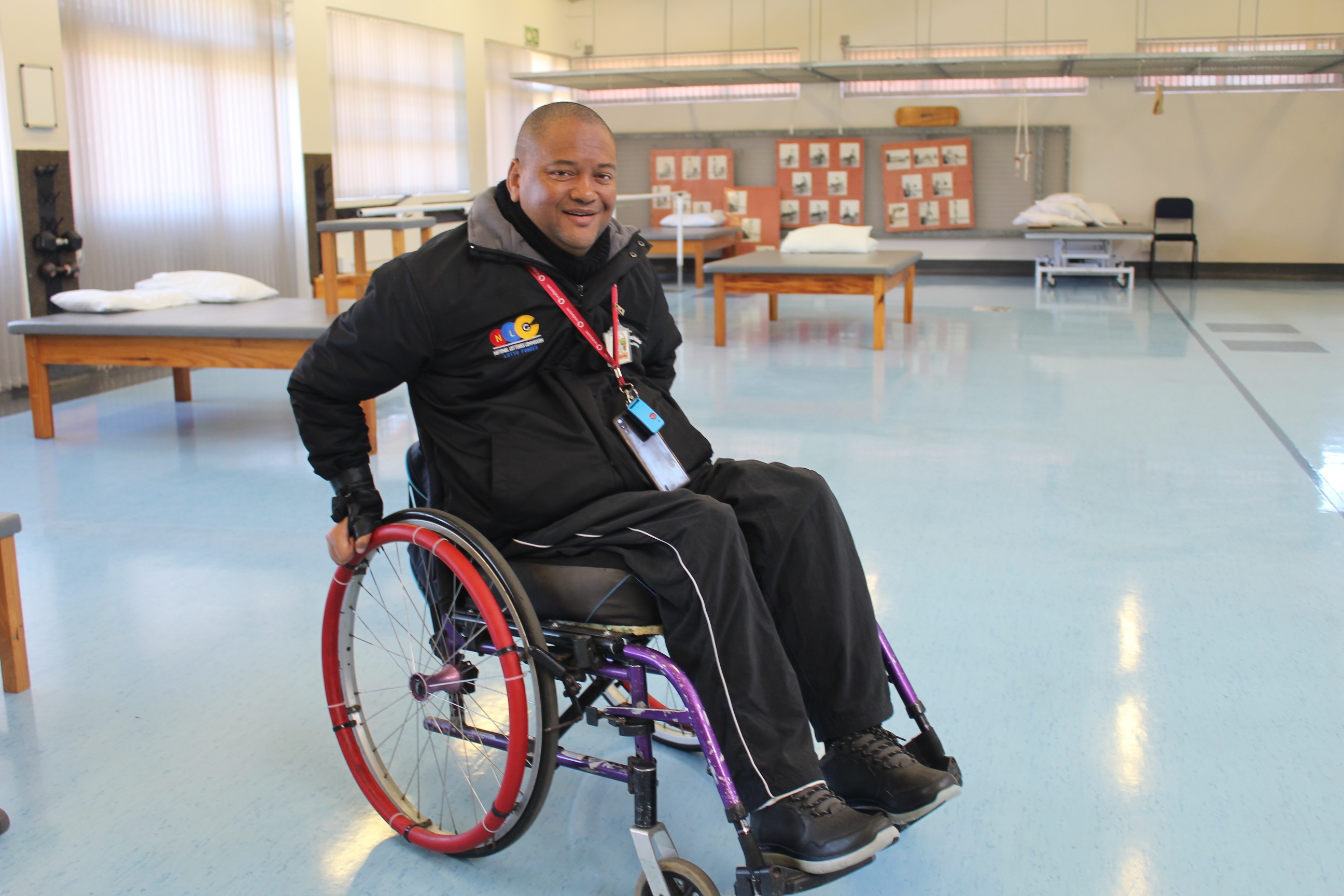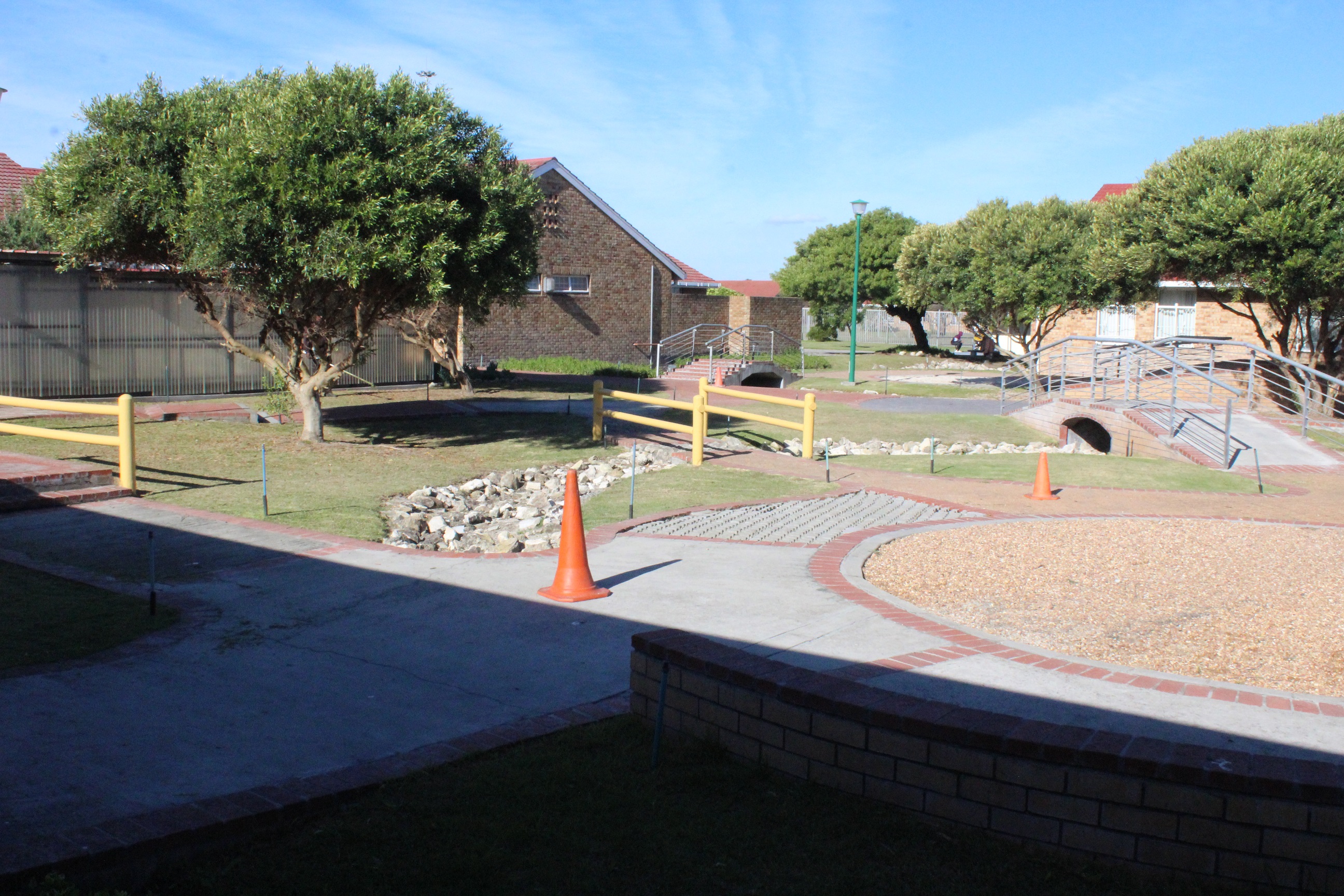
News
International Spinal Cord Injury Day: A gunshot wound caused my spinal cord pain
International Spinal Cord Injury Day (ISCI) is observed on September 5th each year. This year’s theme is Spinal Cord Injuries Conflicts and Disasters, Prepare and Prevent. This theme raises awareness of people with spinal cord injuries and disabilities living in conditions such as war, natural disasters, climate change, poverty, hunger, drought, and pandemics that adversely affect all life across the world.
The Department of Health’s Western Cape Rehabilitation Centre (WCRC) provides specialised, high-intensity rehabilitation and community-reintegration programmes for persons with physical disabilities including those persons with spinal cord injuries.
Adri Visser, Chief Physiotherapist at WCRC, has a multi-disciplinary rehabilitation team consisting of occupational therapists, speech therapists, physiotherapists, social workers, dieticians, and psychologists that assesses a patient with a spinal cord injury and develops a specific rehabilitation treatment plan for each patient.
According to Adri and the statistics that the team at WCRC has been capturing from September 2021 to August 2022, approximately 40 per cent of people treated at WCRC for spinal cord injuries were related to interpersonal violence, such as gunshot wounds and stabbings. The remaining spinal injury cases are from motor vehicle accidents, falls, TB spine, and other traumatic and non-traumatic incidents. WCRC has a 240-bed capacity to treat and rehabilitate persons with stroke or head injuries, spinal cord afflictions, and amputations. Out of the 240 beds, 78 beds are allocated to persons with spinal cord injuries, of which between September 2021 and August 2022 the facility rehabilitated 130 spinal cord injuries related to interpersonal violence in the province. Many of these patients treated were males aged between 26 to 35 transferred and referred from healthcare facilities in the Cape Town Metropole.
“We have a multi-disciplinary rehabilitation team that assesses each case referred to us before we plan a rehabilitation programme for the person,” says Adri Visser, Chief Physiotherapist at WCRC. “The rehabilitation treatment plan and length of stay is usually between 8 to 12 weeks, but the patient can remain longer in care depending on the injury and mental health status, family support, and healing process,” says Adri.
“Our team assesses the patient and sets goals for the person in the first 2 weeks. We interview the person, obtain images of their home environment, and the type of outdoor home terrain they live in, and we provide the correct wheelchair that can assist the person with mobility at home,” says Adri.
Fizel Devries (43) is the Information Management Clerk at WCRC for 15 years and living with a spinal cord injury since he was in matric. Although he has a disability, Fizel has fought the odds and paved a more independent life for himself.
Fizel was caught in a crossfire outside a nightclub in 1995 which changed his life completely. After a gunshot wound, he was rushed to hospital and diagnosed with a spinal cord injury and permanent paralysis. He received rehabilitation treatment at Conradie Hospital in 1995, but became mentally depressed because of his mobility limitations.
“I was young and in school when I got shot outside the nightclub. I was standing in the queue when we heard gunshots and I was the only one still standing while everyone else was lying down. My friends asked me if I am ok and touched my back, that’s when I felt this warm sensation on my back, collapsed and was rushed to hospital,” says Fizel.
“After six months of rehabilitation treatment, it was difficult for me to accept that I won’t be able to live a normal life again,” says Fizel. He was referred to Astra school for the physically disabled in Montana by a social worker to complete his matric. At first, he didn’t want to attend school but made a friend “support buddy” at the school that he could relate to and who encouraged him to pull through mentally. “I started learning about other types of disabilities which changed my perception of my disability. I am a paraplegic, with limited mobility and I matriculated, which made me realise that I have a future and I am not going to let my disability defeat me,” says Fizel.
After he matriculated, Fizel lived with his mother and grandmother in Stellenbosch. He found it difficult to seek employment near home, as the companies were not so keen to employ persons with disabilities. He started socializing with people in his community that were not a positive influence in his life and soon realized that was not the life for him. Fizel remained in contact with his “support buddy” and later decided to move in with his friend at a Chesire house in the northern suburbs, which is a home for paraplegics and quadriplegics in Cape Town. He joined the QuadPara Association of South Africa for further support with his disability and was determined to find a job and applied for a position as an Information Management Clerk at WCRC. He was a successful candidate and 15 years later he is still enjoying his working career at the Department of Health where he has access to a strong support system.
“We often find that the patients we rehabilitate live in environments that do not accommodate their disability. In Fizel’s case, he made the conscious decision to move to another environment that accommodated his disability, and he had a good family and social support structure,” says Adri.
WCRC treats people from various areas in the province, living in informal settlements, cape flats, rural farm areas, and the suburbs. Majority of the persons with spinal cord injuries they treat live in areas that are not conducive to supporting their disability. They are left vulnerable when fires or violent outbreaks erupt ultimately making a quick escape challenging. “To mitigate these community challenges that our patients face, we design and create wheelchairs that are better suited to rougher terrain for those living in shack or backyard dwelling homes. We have an outdoor obstacle course to teach them how to operate their chairs in their home terrain,” says Adri.
“For patients living on the Cape Flats in second or third storey flats, we assist by writing motivation letters to the Department of Housing to request to have the person moved to a ground floor accommodation if they have one available which often proves to be challenging. We teach family members to help the person go up the stairs. We also brainstorm and teach our patients practical tips on how to mitigate challenges in their communities such as shack fires or how to move out of the way of possible conflict situations,” says Adri.
Organisations such as the QuadsPara Association of South Africa (www.qasa.co.za) and government institutions such as the Western Cape Rehabilitation Centre (www.wcrc.co.za) are available to provide support to persons with disabilities and their families.





